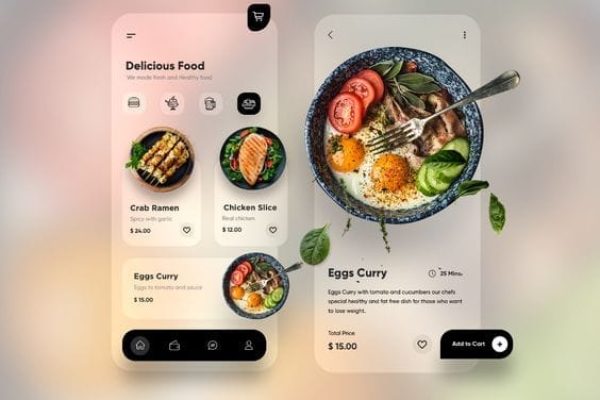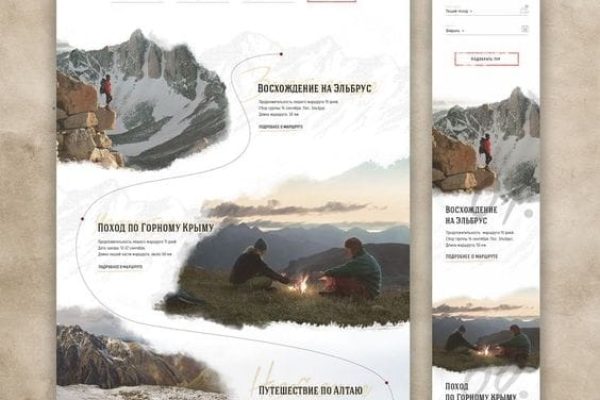In an era where smartphones have become our constant companions, the digital landscape has adapted to the nuances of mobile technology, reshaping the way we interact with the web. Morocco, a vibrant tapestry of culture and innovation, is experiencing this transformation firsthand. As the nation increasingly embraces the mobile revolution,a pivotal shift in web design beliefs is taking center stage: mobile-first design.This approach prioritizes the user experience on handheld devices,fundamentally altering how Moroccan websites are conceived,developed,and utilized. In this article, we will explore the implications of mobile-first design on the Moroccan digital ecosystem, examining its influence on accessibility, engagement, and the future of online interaction in a country that bridges tradition and modernity. Join us as we navigate this exciting intersection of technology and culture, revealing how the shift to mobile-first is not just a trend but a vital strategy for success in MoroccoS evolving web landscape.
The mobile-first paradigm is rapidly reshaping Morocco’s digital landscape, as an increasing number of users turn to their smartphones for online engagement. This shift compels businesses to rethink their digital strategies, focusing on mobile-first principles to enhance the user experience. By prioritizing mobile design, organizations can ensure that their websites are not only visually appealing but also functional and navigable on smaller screens. Key considerations for optimizing content and navigation for mobile users include:
- Responsive Design: Websites must adjust seamlessly to various screen sizes, providing an optimal viewing experience.
- Simplified Navigation: Menus should be concise and intuitive, allowing users to find information quickly.
- Fast loading Times: Reducing image sizes and optimizing code can significantly enhance performance on mobile networks.
Implementing mobile-first design strategies on Moroccan websites requires a thoughtful approach to content. Ensuring that text is readable without excessive zooming and that images load properly on mobile devices is essential for retention. Furthermore, it’s crucial to adopt a data-driven mindset, utilizing analytics to understand user behaviour on mobile platforms. Effective strategies might include:
- A/B Testing: Experiment with different layouts and content to see what resonates with mobile users.
- Prioritizing Core Content: Highlight the most relevant information to ensure users don’t feel overwhelmed.
- Touch-Friendly Interfaces: Design buttons and links that are easy to interact with on touch screens.
Q&A
Q&A: The Impact of Mobile-First Design on Moroccan Websites
Q1: What does “mobile-first design” mean in the context of website development?
A1: Mobile-first design is an approach that prioritizes the development of websites for mobile devices before adapting them for larger screens like tablets and desktops.This design strategy focuses on ensuring an optimal user experience on smartphones, which are often the primary devices used for browsing, especially in regions like Morocco where mobile internet usage is growing rapidly.
Q2: Why is mobile-first design particularly relevant for Moroccan websites?
A2: In Morocco, internet access increasingly hinges on mobile technology. A significant portion of the population relies on smartphones for online activities, from shopping to banking to accessing information. Mobile-first design accommodates this trend, ensuring that sites load quickly, are easy to navigate, and provide a seamless user experience, all of which are essential in a market where consumer expectations are evolving.
Q3: How does mobile-first design influence user behavior on Moroccan websites?
A3: With mobile-first design, Moroccan websites tend to offer more streamlined navigation and faster loading times, which can significantly enhance user satisfaction. This design approach leads to improved engagement, as users are more likely to stay on a site that is visually appealing and easy to interact with on their mobile devices.Consequently, businesses can expect higher conversion rates and increased customer loyalty.
Q4: Are there specific challenges Moroccan websites face when implementing mobile-first design?
A4: Yes, while the benefits are numerous, Moroccan websites often encounter challenges such as limited resources for development, varying internet speeds, and the diversity of devices used by consumers. Additionally, cultural considerations and varying levels of technological literacy can effect how mobile-first designs are received across different demographics.
Q5: can you give examples of sectors in Morocco that are benefiting from mobile-first design?
A5: Absolutely! E-commerce platforms are witnessing substantial growth, with businesses adopting mobile-first designs to streamlining the shopping experience. Similarly, the tourism sector is also benefiting, as travelers increasingly rely on mobile apps and websites for bookings, restaurant reservations, and local insights.Government services are beginning to embrace mobile-first principles, ensuring citizens can access information and services conveniently on their devices.
Q6: What future trends can we expect regarding mobile-first design in Morocco?
A6: as mobile penetration continues to rise in Morocco, we can anticipate more businesses adopting mobile-first design as the standard. Innovations such as progressive web applications (PWAs) and multi-device responsive designs will become increasingly common. Furthermore, the rise of 5G technology could enable richer, more interactive experiences on mobile devices, persuading even more sectors to invest in mobile-first strategies.
Q7: How can Moroccan businesses begin to transition to a mobile-first design approach?
A7: businesses looking to transition should start by analyzing their current website traffic to gauge mobile usage.From there, conducting user research to understand mobile user needs is essential. Employing skilled web developers who are experienced in mobile-first methodologies can ensure a smooth transition. testing the new design with real users and iterating based on feedback will help optimize the user experience.
This Q&A demystifies the concept of mobile-first design and underscores its significance within the Moroccan digital landscape, charting a course for the future of web development in the region.
Wrapping Up
As we navigate the evolving digital landscape,the shift towards mobile-first design emerges as not merely a trend but a necessity for Moroccan websites. This approach not only streamlines user experience but also opens the door to greater accessibility and engagement in a country where mobile usage is rapidly climbing. By prioritizing mobile interfaces,businesses and organizations can reach a broader audience,fostering inclusivity and driving innovation.
As we conclude our exploration of this pivotal design strategy, it becomes clear that embracing mobile-first principles will serve as a cornerstone for the future of Morocco’s digital presence. As the lines between technology and everyday life continue to blur, the call for adaptability in web design is more pressing than ever.The journey toward optimizing the online experience for Moroccan users has only just begun, and those who heed the mobile-first momentum will undoubtedly reap the benefits in a vibrant, interconnected future. the web is not just a place to display information; it’s a dynamic arena for engagement, and in Morocco, it is ready to thrive.












